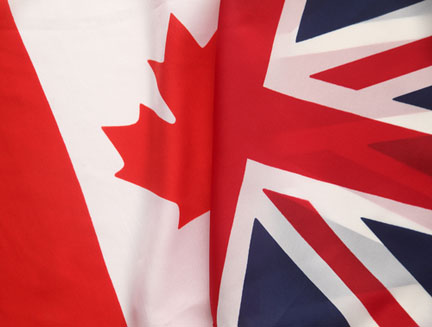Canada and the United Kingdom finally — after more than two years of negotiation — signed a tax treaty this week that would allow, among other things, government tax auditors in the U.K. to inspect the financial reports of Canadian companies.

The agreement, which still requires ratification by the parliaments of both countries, was signed on Monday in London, England, by Foreign Affairs Minister John Baird and U.K. Financial Secretary David Gauke.
Owing largely to the movement in recent years toward common financial reporting standards, Canadian and U.K. tax authorities have agreed to greater “exchange of information” that many companies may find disconcerting.
According to a
news bulletin by Jeffrey Trossman and Jeffrey Shafer at Blake Cassels & Graydon LLP, the protocol adds new provisions that essentially allow for binational audits.
“These new provisions permit a tax authority from one country to enter the other country to conduct tax audits in accordance with procedures to be developed,” the bulletin states.
The amendments also attempt to mirror recent changes to Canada’s Income Tax Act by eliminating withholding taxes between the two countries for interest paid between parties where an “arm’s length” relationship is established. (Canadian subsidiaries, for instance, would no longer be required to pay withholding tax to the Canada Revenue Agency for interest payments to a U.K. parent company.)
In addition, dispute mechanisms have been altered, with a number of statutory limitations applied to the investigative powers of tax authorities. For transfer-pricing cases, “primary adjustments” by tax authorities are now subject to an eight-year statute of limitations, although vague wording has led to confusion on that front.
According to the Blakes bulletin, “the unusual reference to a ‘primary adjustment’ may be intended to signal that the limitation rule is not intended to limit a tax authority’s ability to assess a ‘secondary’ (typically withholding tax) adjustment.”
The eight-year time limit also applies to double taxation cases, with an arbitration twist: “Unresolved double tax cases are to be resolved through a new arbitration process that generally takes effect once three years have elapsed from the start of the competent authority process.”

 The agreement, which still requires ratification by the parliaments of both countries, was signed on Monday in London, England, by Foreign Affairs Minister John Baird and U.K. Financial Secretary David Gauke.
The agreement, which still requires ratification by the parliaments of both countries, was signed on Monday in London, England, by Foreign Affairs Minister John Baird and U.K. Financial Secretary David Gauke.